 docs.litellm.ai
VS
docs.litellm.ai
VS
 LLM API
LLM API
docs.litellm.ai
LiteLLM is a versatile tool designed to streamline interactions with over 100 large language models (LLMs). It offers a unified interface, allowing users to access various LLMs through a consistent OpenAI-compatible input/output format. This simplifies the development process and reduces the complexity of integrating multiple LLMs into applications.
LiteLLM offers functionalities like consistent output formatting, retry/fallback logic across deployments, and spend tracking. It can be used via a Python SDK for direct integration into code or as a proxy server (LLM Gateway) for centralized management and access control.
LLM API
LLM API enables users to access a vast selection of over 200 advanced AI models—including models from OpenAI, Anthropic, Google, Meta, xAI, and more—via a single, unified API endpoint. This service is designed for developers and enterprises seeking streamlined integration of multiple AI capabilities without the complexity of handling separate APIs for each provider.
With compatibility for any OpenAI SDK and consistent response formats, LLM API boosts productivity by simplifying the development process. The infrastructure is scalable from prototypes to production environments, with usage-based billing for cost efficiency and 24/7 support for operational reliability. This makes LLM API a versatile solution for organizations aiming to leverage state-of-the-art language, vision, and speech models at scale.
Pricing
docs.litellm.ai Pricing
docs.litellm.ai offers Free pricing .
LLM API Pricing
LLM API offers Usage Based pricing .
Features
docs.litellm.ai
- Unified Interface: Access 100+ LLMs using a consistent OpenAI-compatible format.
- Consistent Output: Text responses are always available at ['choices'][0]['message']['content'].
- Retry/Fallback Logic: Built-in mechanisms for handling failures and switching between deployments (e.g., Azure/OpenAI).
- Cost Tracking: Monitor and set budgets for LLM usage per project.
- Proxy Server (LLM Gateway): Centralized service for managing access to multiple LLMs, including logging, and access control.
- Python SDK: Integrate LiteLLM directly into Python code for streamlined development.
- Streaming Support: Enable streaming for real-time interactions with LLMs.
- Exception Handling: Maps exceptions across providers to OpenAI exception types.
- Observability: Pre-defined callbacks for integrating with MLflow, Lunary, Langfuse, Helicone, and more.
LLM API
- Multi-Provider Access: Connect to 200+ AI models from leading providers through one API
- OpenAI SDK Compatibility: Easily integrates in any language as a drop-in replacement for OpenAI APIs
- Infinite Scalability: Flexible infrastructure supporting usage from prototype to enterprise-scale applications
- Unified Response Formats: Simplifies integration with consistent API responses across all models
- Usage-Based Billing: Only pay for the AI resources you consume
- 24/7 Support: Continuous assistance ensures platform reliability
Use Cases
docs.litellm.ai Use Cases
- Developing applications requiring access to multiple LLMs.
- Building LLM-powered features with fallback and redundancy.
- Centralized management of LLM access and usage within an organization.
- Integrating various LLMs into existing Python projects.
- Tracking and controlling costs associated with LLM usage.
- Creating a unified LLM gateway for internal teams.
LLM API Use Cases
- Deploying generative AI chatbots across various business platforms
- Integrating language translation, summarization, and text analysis into applications
- Accessing vision and speech recognition models for transcription and multimedia analysis
- Building educational or research tools leveraging multiple AI models
- Testing and benchmarking different foundation models without individual integrations
Uptime Monitor
Uptime Monitor
Average Uptime
99.72%
Average Response Time
109.2 ms
Last 30 Days
Uptime Monitor
Average Uptime
99.86%
Average Response Time
230.63 ms
Last 30 Days
docs.litellm.ai
LLM API
More Comparisons:
-
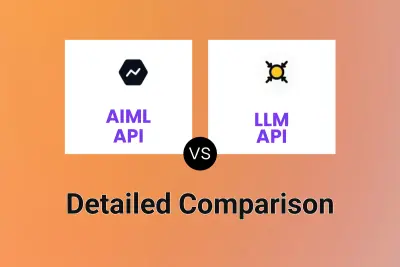
AIML API vs LLM API Detailed comparison features, price
ComparisonView details → -
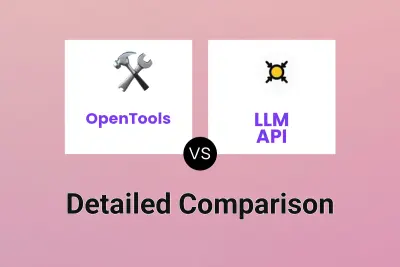
OpenTools vs LLM API Detailed comparison features, price
ComparisonView details → -

docs.litellm.ai vs LLM API Detailed comparison features, price
ComparisonView details → -
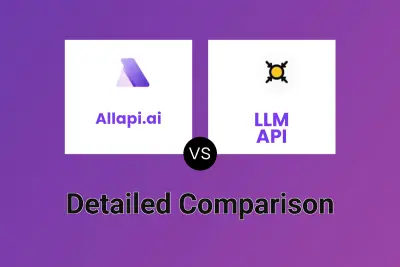
Allapi.ai vs LLM API Detailed comparison features, price
ComparisonView details → -
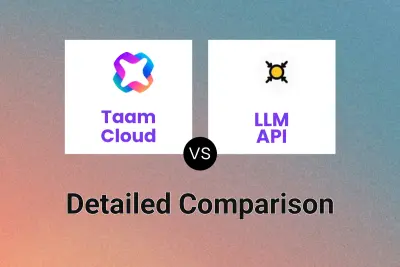
Taam Cloud vs LLM API Detailed comparison features, price
ComparisonView details → -
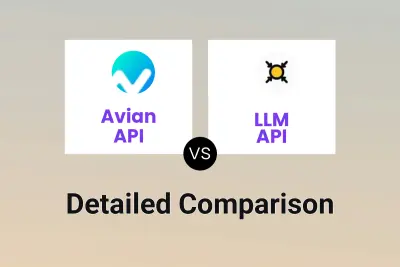
Avian API vs LLM API Detailed comparison features, price
ComparisonView details → -
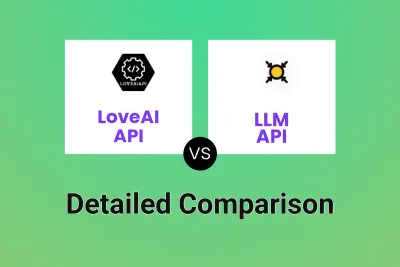
LoveAI API vs LLM API Detailed comparison features, price
ComparisonView details → -

LLM Price Check vs LLM API Detailed comparison features, price
ComparisonView details →
Didn't find tool you were looking for?